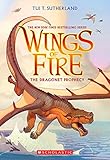Executive Function has been defined in various ways by a range of authors/researchers. Here is a brief chart of some of those “definitions:”
My construction of an Executive Function Skills Chart several years ago included the following :
| Promoting Executive Function in the Classroom, Meltzer, 2010 | Boosting Executive Skills in the Classroom, Cooper/Kahn, 2013 | Smart but Scattered
Dawson and Guare, 2009 |
| Goal Setting, Planning & Prioritizing | Planning and Organizing
Initiating |
Planning/prioritizing
Task Initiation Goal Directed Persistence |
| Organizing | Organizing | Organization |
| Remembering | Working Memory | Working Memory |
| Shifting and Flexible
Problem Solving |
Shifting | Flexibility |
| Self-Monitoring and Checking | Task Monitoring
Self-Monitoring |
Metacognition |
| Emotional Self-Regulation | Inhibition | Response Inhibition
Emotional Control |
| Sustained Attention | ||
| Time Management |
Description of the Concept of Executive Function
| Metacognition, Motivation and Understanding, Weinert and Kluwe, 1987, LEA | Metacognition, Strategy Use and Instruction, Waters and Schneider, 2010 |
| Flavell (1979)
Metacognitive Knowledge *Person Variable
*Task Variables
*Strategy Variables
|
Schneider, Chapter 3: Metacognition and Memory Development
Changes in the Meta Model From Flavell (1979) Declarative Meta Knowledge: knowledge of human mind and its doings Meta Experiences: Awareness and feeling elicited in a problem solving situations (feelings of knowing) Meta Skills: playing a role I many types of cognitive activity (language, reading, attention, memory)
To More Recent Declarative Knowledge – Knowing That Procedural Knowledge – Knowing How Conditional Knowledge – Knowing Why
|
| Chi
Domain Knowledge *Declarative Knowledge (what) *Procedural Knowledge (how) *Strategies (general) Metaknowledge *Meta Declarative Knowledge *Meta Procedural Knowledge *Meta Strategies |








